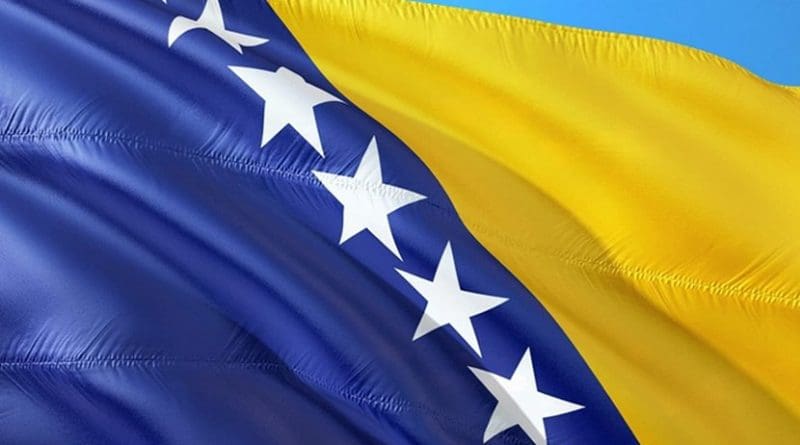NATO Dismisses Russian Warning To Bosnia Against ‘Hostile Step’
NATO has shrugged off a Kremlin warning to ‘Bosnian friends’ not to seek closer ties with the Atlantic alliance, saying each country has the sovereign right to choose its security arrangements.
By Danijel Kovacevic
NATO has hit back to a statement from the Russian embassy in Bosnia, which said on Friday that “in the event of practical rapprochement between Bosnia and Herzegovina and NATO, our country will have to react to this hostile step”.
Each country has the sovereign right to choose its security arrangements, NATO said, adding that whether countries choose to cooperate with NATO – through a partnership or as a full member – depends on each individual applicant and the 30 allies.
“No third party has the right to intervene or veto such a process,” Oana Lungescu, NATO spokeswoman, told regional TV N1 on Friday.
“All threats in this regard are unacceptable. The time of spheres of influence has passed. NATO and Bosnia and Herzegovina have long-term and mutually beneficial cooperation. Cooperation with NATO does not prejudge any potential Bosnia and Herzegovina’s future membership in NATO,” it added.
The Russian embassy said its statement was “a reaction to several publications praising the benefits of Bosnia’s NATO membership”, but did not clarify which publications it meant.
“We call on Bosnian friends to think carefully, to weigh the pros and cons, to take into account the views of all the country’s inhabitants who are far from consensus on this issue,” the embassy said in a press release.
Multi-ethnic Bosnia is deeply divided over the merits of joining the alliance. Most Bosnian Serbs strongly oppose membership, while while most Bosniaks and Bosnian Croats are in favour.
In October 2017 the assembly of the Bosnian Serb entity, Republika Srpska, passed a largely symbolic resolution proclaiming its military neutrality as a perceived counterpoint to moves to join NATO. The resolution proclaimed the neutrality of the Republika Srpska in relation to military alliances and said it was committed to coordinating its future status with neutral Serbia.
Zeljko Komsic, the Croat member of the three-man Bosnian presidency, on Friday said that “twisted threats” from the Russian embassy were not acceptable. He said the position of the Russian embassy, and of the Foreign Ministry of Russia, was “the continuity of their activities towards all countries that have a desire to join NATO”.
“That was the case in Montenegro, and later in Nort Macedonia, during their journey towards NATO membership. It is obviously a geopolitical game of Russia that aims to stop the expansion of NATO in Europe, which is a Russian strategic goal,” Komsic said.
The Russian embassy statement came a day after a Commission for Cooperation with NATO was constituted in Bosnia. Its task is to determine priorities in the implementation of obligations arising from participation in NATO’s Partnership for Peace program, PfP, and a document called the Reform Program of Bosnia and Herzegovina.
A meeting of the state government on February 24 changed the name of the commission from Commission for Integration with NATO to the Commission for Cooperation with NATO – which was a significant change, as the previous name implied integration into the alliance while the new one does not.
Only Defence Minister Sifet Podzic was against the decision.
On December 5, 2018, Bosnia was admitted to the Membership Action Program, MAP. A year later, the Bosnian Presidency accepted a document called the Reform Program, which is identical to the Annual National Plan, ANP, prepared by any country wishing to become a member of NATO. It is a plan for reforms in several areas, including political, security, legal and defence reforms.
Bosnia is currently participating in the MAP and is the only country in that status, after North Macedonia was admitted to membership in March 2020 and Montenegro in June 2017.

